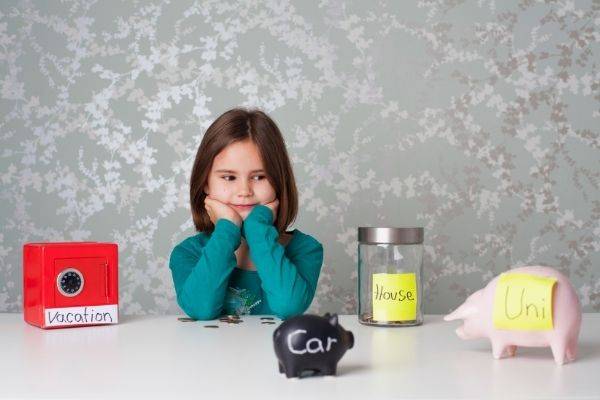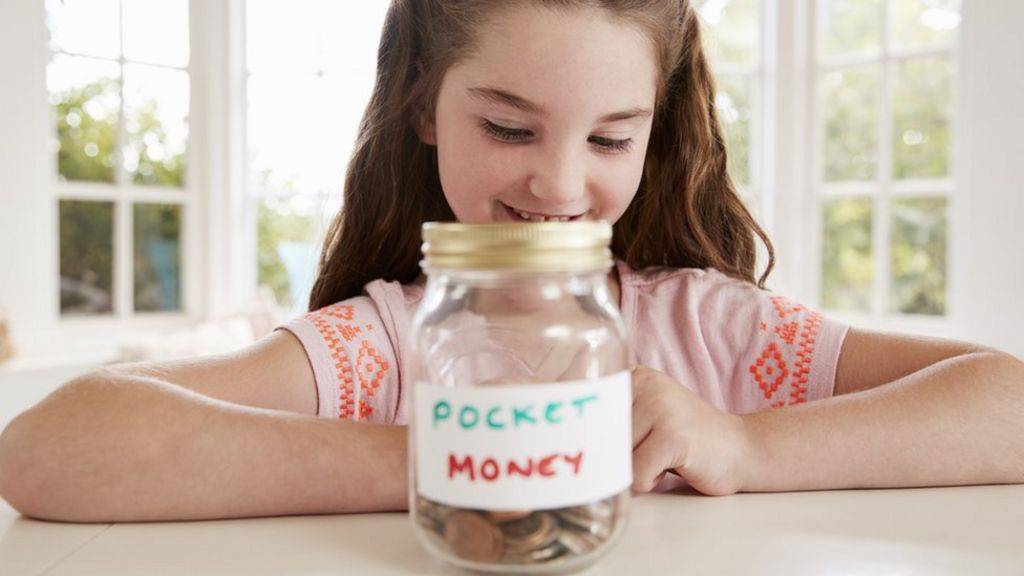How Pocket Money Can Help Your Kids Form Good Money Habits For Life
The Power of Pocket Money
Every parent wants to give their child the best start in life. But when it comes to handing out pocket money to kids and teens and teaching them to value and handle it wisely, just what is the best way to approach it?
And how can parents teach their children financial responsibility to help them prepare for adult life? There are so many important skills that children need to survive and thrive in today’s world and developing strong financial skills is vital for their future well-being.
Sometimes the whole subject of pocket money can seem a little overwhelming, and it also has the potential to leave you frazzled as a parent when your kids nag for more, don’t agree to chores or blow it all on sweets!
But Wait! It doesn’t have to be a negative or tantrum igniting experience for you or your child.
Check out our top 3 tips on how you can help your kids to handle their pocket money, become more responsible with it, and how it can be a powerful tool to teach them important life lessons.

#1. A regular pocket money allowance can help kids understand how money works and to appreciate the value of things
A regular income allows kids and teens to start thinking about the true value of things. If they never have to buy things for themselves, out of their own money, they may not ever learn to fully appreciate the cost of things and the need to sometimes budget or save.
How much pocket money you want to give your child or teen is a personal choice; there is no right or wrong amount, and it will of course depend on their age and your personal circumstances.
But research shows that children begin to form money habits by the age of 7 (Money Advice Service).
The important thing is to start allowing your child to handle their own money so they can begin to understand the following principles:
-
You need money to buy things and some things are more expensive than others.
-
You need to decide what you want to spend your money on; once it’s spent, there’s no more money till ‘payday’.
-
You need to budget for things and decide what you can afford now or what you might need to save for.
Sit down with your child and agree on how much money they are going to get and what it should cover. Older ones may be given a larger allowance, and therefore be expected to cover their own cinema trips or travel expenses, for example.
The key is to stick to what you agree with. Kids will make mistakes – but it’s important to let them understand that if they do overspend it doesn’t mean they can ask for a top-up from the bank of mum or dad! Which brings us on to our next point…
#2. Pocket money is a brilliant tool to teach Your child how to budget and save

Experts agree that one of the most important financial lessons we can teach our children is the need to budget and to recognise the difference between ‘wants’ and ‘needs’.
It’s a fact that kids love buying things independently from their parents and enjoy the sense of responsibility that comes from making their own choices. So, If you agree a set amount each week or month and help your child to list the things they will need to get with it, they will also enjoy the challenge of thinking about how to make their money work for them.
Sweets, magazines, and other instant gratifiers may not seem so appealing if they recognise, they may miss out on other things. And it may make them think twice about blowing it in one go – therefore encouraging them to save and think about the true value of things.
Whether it’s your 8-year-old deciding what to spend their £2 on, or your pre-teen with £20 in their piggy bank, you can sit down and have a chat with them about how they might spend their money. What do they want? What do they need? There may be things they can be purchase right away, or they may need to wait and save for something. In today’s instant gratification society, having a longer-term goal that requires waiting and saving, is a brilliant concept for them to learn! So, encourage them to set goals and then save for them.
#3. Giving children chores or the opportunity to earn their own pocket money teaches them that money doesn’t grow on trees
Handing out money whenever a child asks for it can lead to entitlement and put a strain on any parent’s wallet or nerves!
If you can demonstrate to your kids that effort and a bit of work lead to more spending power, you’ll be reinforcing the concept that money doesn’t just grow on trees, and eliminate any rewards they might expect simply from pestering. They’re also less likely to spend their ‘hard-earned’ cash on trivial things!
As one mum reflects, “my daughter had a bit of a shock when she turned 18 and went off to university. She’d never had to do chores or really work for her money, we’d always just given it to her as an allowance. But when she started her studies, I couldn’t afford to cover all her costs so encouraged her to get a part-time job. She really resisted this and felt it was so unfair which caused all sorts of problems in our relationship. I wish now I had taught her the importance of working for money or at least doing some jobs around the house; it would have prepared her better for real life and saved us both a lot of tears!”
You can teach your kids and teens that effort is a requirement of earning money by giving them chores or challenges to complete or even encourage them to be resourceful and think of other ways they could earn money for themselves.
Tradem: An Exciting New Way For Kids To Earn Their Own Pocket Money
Tradem is the perfect platform for children to learn how to manage their own money. It’s the first online marketplace designed exclusively for children and teens (with full parental controls) where they can sell or trade their stuff, earn money, and have fun at the same time.
Tradem comes packed with tutorials for kids to learn everything about buying and selling, from how to use the site, to how to become an entrepreneur!
Research shows that young people develop key life skills and grow in self-confidence when trading with peers and making their own money.

With Tradem your kids can learn to manage their own money, budget and save, as well as a whole host of other life-enhancing skills:
They grow to understand the value of things.
-
They learn that making money involves hard work.
-
They develop empathy and learn to understand other peoples’ wants and needs.
-
They learn to spot opportunities and how to use them.
-
They become confident in overcoming setbacks and solving problems.
-
They get used to dealing with uncertainty and risk.
-
They get better at planning and self-organisation.
“Trading with peers is a terrific opportunity for your child to practice socials skills like negotiation. Plus, it fosters their sensitivity to others and their ability to fend for themselves.”
(Beth Roberts, MA, co-author and co-director of the Wannaplay Program)


